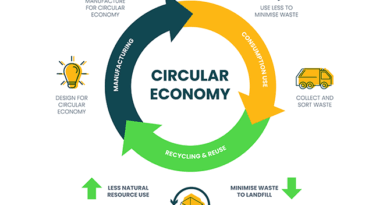The Road to a Greener Future: Plastic Reduction
Introduction of Plastic Reduction:
In a world where plastic is omnipresent, from our morning coffee to the packaging of our groceries, tackling plastic waste can seem like a formidable task. Yet, the impact of plastic pollution on our planet is severe, affecting ecosystems and human health alike. The shift towards reducing plastic use is not merely a trend but a crucial movement towards sustainability and environmental stewardship. Here’s how we can collectively embark on this transformative journey.
The Ripple Effects of Plastic Pollution:
Plastic pollution is more than an environmental nuisance; it’s a pressing global crisis. Each year, millions of tons of plastic waste end up in oceans and landfills, creating a cascade of problems—from choking marine life to leaching toxins into our food chain. Microplastics, the tiny fragments resulting from plastic degradation, have infiltrated even the most remote environments, raising significant concerns about their long-term effects on health and ecosystems.
Practical Strategies for Cutting Plastic Use:
- Opt for Reusable Essentials: One of the simplest ways to reduce plastic consumption is by choosing reusable products. A sturdy water bottle, cloth shopping bags, and metal or bamboo straws can make a big difference. These small changes in daily habits can significantly lessen your plastic footprint.
- Prioritize Minimal Packaging: When making purchases, select items with minimal or eco-friendly packaging. Steer clear of products wrapped in excessive plastic and prefer those that use recyclable or compostable materials.
- Support Eco-Conscious Brands: Your consumer choices matter. By supporting businesses that are committed to reducing plastic waste and offering sustainable alternatives, you can help drive the market toward more environmentally friendly practices.
- Engage in Effective Recycling: Familiarize yourself with local recycling rules to ensure that you are sorting and disposing of plastic waste correctly. Effective recycling helps reduce the volume of plastic that ends up in landfills and can contribute to a more efficient waste management system.
- Participate in Cleanup Efforts: Get involved in local clean-up initiatives or organize your own. Removing plastic waste from natural areas not only helps protect wildlife but also prevents further environmental degradation.

Cutting-Edge Solutions and Technologies:
While individual actions are vital, broader systemic changes are necessary to address plastic pollution effectively. Here are some exciting innovations:
- Biodegradable Plastics: New types of plastics made from natural materials are being developed to break down more easily than traditional plastics. These eco-friendly alternatives offer a promising way to reduce plastic waste, though they are still evolving.
- Plastic-Digesting Microorganisms: Researchers are exploring bacteria and enzymes capable of breaking down plastic. While these biological solutions are in early stages, they hold potential for revolutionizing how we manage plastic waste.
- Circular Economy Approaches: The circular economy model focuses on designing products that can be reused and recycled continually. By creating a closed-loop system, we can minimize the need for new plastic production and reduce overall waste.
Stories of Positive Change:
Around the globe, inspiring individuals and communities are making significant strides in the fight against plastic pollution. From innovative zero-waste stores to sustainable fashion pioneers, these success stories highlight the power of collective action and creative thinking. Their efforts not only raise awareness but also demonstrate that meaningful change is within reach.
Charting a Sustainable Path Forward:
The journey toward reducing plastic waste is a shared responsibility that calls for both personal and collective action. By making informed choices, supporting sustainable practices, and pushing for systemic change, we can all contribute to a healthier planet. Each small step matters, and together, we can forge a path to a cleaner, more sustainable future for ourselves and generations to come.
Let’s embrace the challenge of reducing plastic waste with creativity and commitment, ensuring that our efforts today lead to a brighter, more sustainable tomorrow.
FAQs:
1. Why is plastic waste a critical issue?
Plastic waste is a major environmental concern due to its long-lasting nature and high production rates. Plastics can persist for centuries, fragmenting into microplastics that pollute soils and waterways. This contamination endangers wildlife, disrupts ecosystems, and potentially affects human health by entering the food chain.
2.What are some groundbreaking technologies addressing plastic pollution?
Innovative technologies include:
- Plastic-degrading enzymes: Bacteria and enzymes that can break down plastic materials.
- Advanced recycling techniques: Methods that enhance the efficiency of recycling processes and reduce contamination.
- Biodegradable materials: Plastics made from natural substances designed to decompose more easily.
3. Are biodegradable plastics a viable solution?
Biodegradable plastics offer some benefits but aren’t a complete fix. They often require specific conditions to break down effectively and may not decompose properly in typical landfill environments. They can still contribute to microplastic pollution if not managed properly. They should be part of a larger approach that includes reducing plastic use and enhancing recycling practices.
4. How can I support businesses that are eco-friendly?
To support sustainable businesses, look for:
- Products with minimal or eco-friendly packaging.
- Companies that use recycled materials.
- Transparent information about their environmental policies. Supporting these businesses helps foster a market for sustainable practices and encourages others to follow suit.
5. What should I do with plastics that can’t be recycled?
For non-recyclable plastics:
- Repurpose them for crafts or DIY projects.
- Check if local programs offer specialized disposal options.
- Reduce your use of such items to limit waste creation in the first place.
6. How can I encourage my workplace or school to reduce plastic use?
Promote plastic reduction by:
- Proposing changes to minimize single-use plastics, like switching to reusable utensils and containers.
- Organizing awareness campaigns or educational sessions.
- Working with administrators to implement sustainability policies and practices.
7. What role does recycling play in managing plastic waste?
Recycling is crucial as it processes used plastics into new products, lessening the need for new materials and mitigating environmental impact. Effective recycling relies on proper sorting and adherence to local recycling guidelines to ensure materials are handled appropriately and efficiently.
8. Are plastic-free alternatives as effective and cost-effective as plastic products?
Many plastic-free alternatives are both effective and economical. Although some may have higher initial costs, they often lead to long-term savings and benefits, such as greater durability and reduced environmental impact. Comparing options and investing in high-quality alternatives can be both financially and environmentally advantageous.
Staying updated on these technologies and supporting their development can contribute to more effective solutions for managing plastic waste.




